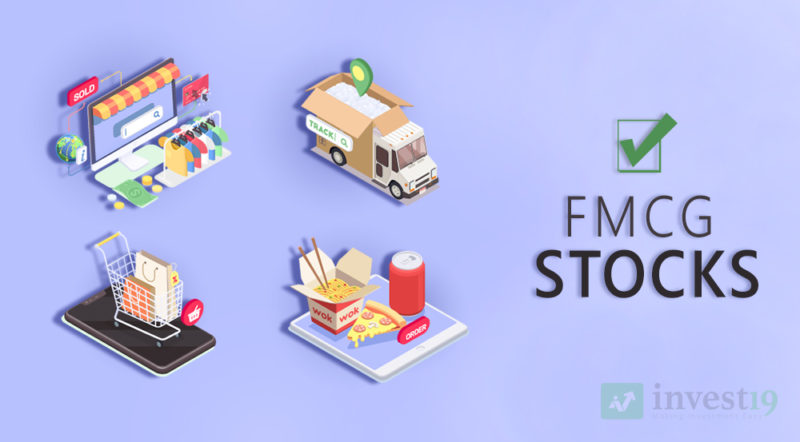Fast-moving consumer goods (FMCG) sector is the next safe-haven for investors who incurred huge losses in the stock market amid coronavirus pandemic. FMCG is the 4th largest sector of the Indian economy comprises of companies who manufacture non-durable goods for mass consumption. Britannia, ITC, Godrej Industries, HUL, Colgate-Palmolive (India) etc. – are a few examples of companies from FMCG sector that are listed on major exchanges of Indian stock market. FMCG sector is the one that stood tall post-financial crisis-2008 and likely to continue its performance even in the times of COVID-19 outbreak. FMCG stocks considered defensive, which means stocks are in-demand even when the bears take control of the capital markets.
It is simply because, irrespective of how the economy behaves, the demand for consumer goods never remains stable. When the economy is going through a slowdown, people reduce spending money on discretionary products or items such as a car, major appliances, and technology gadgets but continue to buy necessary fast-moving consumer goods such food items, OTC-medication, baked goods, toiletries, office supplies and cleaning products among other non-durable goods. The overall performance of the FMCG sector remains attractive to investors especially when the economy is going through a lot.
FMCG Sector in India
As we mentioned above, the FMCG is the 4th largest sector in India with Household and Personal Care accounts for more than 50 per cent. The urban segment is the largest contributor which accounts for around 55 per cent of overall revenue share generated by the FMCG sector. The semi-urban and rural segments are also driving the FMCG market where the rural segment accounts around 36 per cent of overall FMCG spending.
The sector has grown into one of the top contributors to the Indian Gross Domestic Product (GDP) and continue to be a significant contributor as the population and consumption are rising. The sector is benefiting with the arrival of 100 per cent foreign direct investment (FDI) and Goods & Services Tax (GST). Not just that, many online portals also play a key factor behind propelling demand amongst the youth by facilitating more convenient means for consumers.
Why FMCG Stocks Should be Part of Your Portfolio?
Well, why they shouldn’t be? – As long as industrialization continues within the country along with the government policies to upgrade rural areas, the demand for consumer goods will always be there and grows with time. The major population of India country still under besides rural areas where the potential for upgradations is very high. With the rising demand, the companies continue to grow in numbers and FMCG sales, thereby offering healthy returns to those who invest in FMCG stocks.
The second important reason to have FMCG stocks within your portfolio is the rising competition within the sector that bounds companies to come up with new product segments to keep with the competition. In the pursuit of doing better, the companies focus on their qualities, strategies, and other aspect areas that benefit end-users. Last but not the least, the start-up culture within the FMCG sector fasten the pace of facilitating services via online and door-to-door modes. The online businesses have changed the face of the FMCG sector, made it into a more attractive one to invest in it.
Besides, the FMCGstocks are considered defensive, means even if there a bear run in the stock market, the stocks are steadier than most of the other stocks and sectors. So, having FMCG stocks within the portfolio will ensure that your portfolio does not become the victim of slowdown or any adverse movement in the market.
Disclaimer: The views and opinions at Invest19.com are expressed by the experts are for educational purposes, not to profile any professional advice to encourage users to make investments. Invest19.com advises users to check with the certified experts before making any investment decisions.

Nice article. well written and well managed. Thanks..
Is this good time into invest in Penny Stocks (SME listed) in FMCG space, considering the maturity of the FMCG companies during COVID?